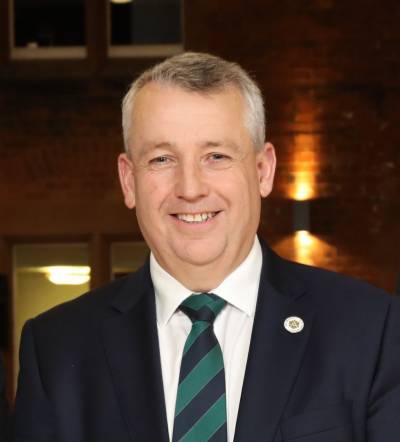
A group of farmers in Northern Ireland are making significant progress towards Net Zero, with some already achieving Net Zero, as part of a pioneering project called Accelerating Ruminant Carbon Zero (ARCZero).
In NI farmers must cut emissions by 48% before 2030 and reach net zero by 2050 under the Climate Change Act, which was introduced in 2022.
Funded by the NI Executive and the EU’s EIP-Agri Programme, Professor John Gilliland of Queen’s University Belfast, and advisor to AHDB, set up the project in April 2021 to show how farming, unlike other sectors, plays a vital role in capturing and storing carbon, as well as reducing emissions.
Prof Gilliland’s dry stock farm is one of the seven farms involved in the project.
On each farm, GHG emissions versus carbon sequestration were measured at the outset of the project to provide each business with baselines. This was completed by undertaking detailed carbon emission audits alongside the assessment of carbon stocks within soils, hedgerows, and trees.
Farm audits were carried out using SAC’s AgreCalc tool to identify how future management practices could be changed to accelerate each farm’s move toward net zero.
Two farms had already reached net zero in the initial audits with the remaining five farms re-audited in April 2023. These showed that during the two years since the start of the project, each one had reduced their carbon emissions.
Furthermore, data revealed that the seven farmers are managing over half a million tonnes of carbon stocks, annually.
John says the project proves Net Zero is achievable within the target timeframes, adding:
“Farmers are down and confused about how to reach net zero. But there is a way forward, so it is time to lift our heads, get on the front foot and use our science and knowledge to prove to the public and governments that we can deliver net zero.”
John will reveal more about the project at the British Cattle Breeder’s Conference on 23 January. Book your place here